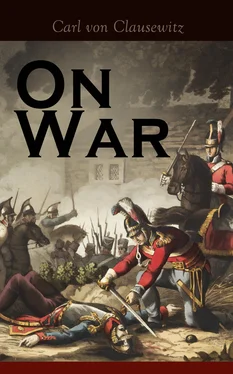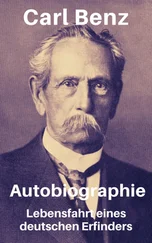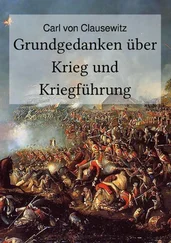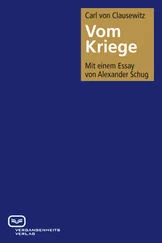The consequences of the nature of War, how ends and means act in it, how in the modifications of reality it deviates sometimes more, sometimes less, from its strict original conception, fluctuating backwards and forwards, yet always remaining under that strict conception as under a supreme law: all this we must retain before us, and bear constantly in mind in the consideration of each of the succeeding subjects, if we would rightly comprehend their true relations and proper importance, and not become involved incessantly in the most glaring contradictions with the reality, and at last with our own selves.
CHAPTER III.
The Genius for War
Table of Contents
Every special calling in life, if it is to be followed with success, requires peculiar qualifications of understanding and soul. Where these are of a high order, and manifest themselves by extraordinary achievements, the mind to which they belong is termed GENIUS.
We know very well that this word is used in many significations which are very different both in extent and nature, and that with many of these significations it is a very difficult task to define the essence of Genius; but as we neither profess to be philosopher nor grammarian, we must be allowed to keep to the meaning usual in ordinary language, and to understand by “genius” a very high mental capacity for certain employments.
We wish to stop for a moment over this faculty and dignity of the mind, in order to vindicate its title, and to explain more fully the meaning of the conception. But we shall not dwell on that (genius) which has obtained its title through a very great talent, on genius properly so called, that is a conception which has no defined limits. What we have to do is to bring under consideration every common tendency of the powers of the mind and soul towards the business of War, the whole of which common tendencies we may look upon as the ESSENCE OF MILITARY GENIUS. We say “common,” for just therein consists military genius, that it is not one single quality bearing upon War, as, for instance, courage, while other qualities of mind and soul are wanting or have a direction which is unserviceable for War, but that it is AN HARMONIOUS ASSOCIATION OF POWERS, in which one or other may predominate, but none must be in opposition.
If every combatant required to be more or less endowed with military genius, then our armies would be very weak; for as it implies a peculiar bent of the intelligent powers, therefore it can only rarely be found where the mental powers of a people are called into requisition and trained in many different ways. The fewer the employments followed by a Nation, the more that of arms predominates, so much the more prevalent will military genius also be found. But this merely applies to its prevalence, by no means to its degree, for that depends on the general state of intellectual culture in the country. If we look at a wild, warlike race, then we find a warlike spirit in individuals much more common than in a civilised people; for in the former almost every warrior possesses it, whilst in the civilised whole, masses are only carried away by it from necessity, never by inclination. But amongst uncivilised people we never find a really great General, and very seldom what we can properly call a military genius, because that requires a development of the intelligent powers which cannot be found in an uncivilised state. That a civilised people may also have a warlike tendency and development is a matter of course; and the more this is general, the more frequently also will military spirit be found in individuals in their armies. Now as this coincides in such case with the higher degree of civilisation, therefore from such nations have issued forth the most brilliant military exploits, as the Romans and the French have exemplified. The greatest names in these and in all other nations that have been renowned in War belong strictly to epochs of higher culture.
From this we may infer how great a share the intelligent powers have in superior military genius. We shall now look more closely into this point.
War is the province of danger, and therefore courage above all things is the first quality of a warrior.
Courage is of two kinds: first, physical courage, or courage in presence of danger to the person; and next, moral courage, or courage before responsibility, whether it be before the judgment-seat of external authority, or of the inner power, the conscience. We only speak here of the first.
Courage before danger to the person, again, is of two kinds. First, it may be indifference to danger, whether proceeding from the organism of the individual, contempt of death, or habit: in any of these cases it is to be regarded as a permanent condition.
Secondly, courage may proceed from positive motives, such as personal pride, patriotism, enthusiasm of any kind. In this case courage is not so much a normal condition as an impulse.
We may conceive that the two kinds act differently. The first kind is more certain, because it has become a second nature, never forsakes the man; the second often leads him farther. In the first there is more of firmness, in the second, of boldness. The first leaves the judgment cooler, the second raises its power at times, but often bewilders it. The two combined make up the most perfect kind of courage.
War is the province of physical exertion and suffering. In order not to be completely overcome by them, a certain strength of body and mind is required, which, either natural or acquired, produces indifference to them. With these qualifications, under the guidance of simply a sound understanding, a man is at once a proper instrument for War; and these are the qualifications so generally to be met with amongst wild and half-civilised tribes. If we go further in the demands which War makes on it, then we find the powers of the understanding predominating. War is the province of uncertainty: three-fourths of those things upon which action in War must be calculated, are hidden more or less in the clouds of great uncertainty. Here, then, above all a fine and penetrating mind is called for, to search out the truth by the tact of its judgment.
An average intellect may, at one time, perhaps hit upon this truth by accident; an extraordinary courage, at another, may compensate for the want of this tact; but in the majority of cases the average result will always bring to light the deficient understanding.
War is the province of chance. In no sphere of human activity is such a margin to be left for this intruder, because none is so much in constant contact with him on all sides. He increases the uncertainty of every circumstance, and deranges the course of events.
From this uncertainty of all intelligence and suppositions, this continual interposition of chance, the actor in War constantly finds things different from his expectations; and this cannot fail to have an influence on his plans, or at least on the presumptions connected with these plans. If this influence is so great as to render the pre-determined plan completely nugatory, then, as a rule, a new one must be substituted in its place; but at the moment the necessary data are often wanting for this, because in the course of action circumstances press for immediate decision, and allow no time to look about for fresh data, often not enough for mature consideration.
But it more often happens that the correction of one premise, and the knowledge of chance events which have arisen, are not sufficient to overthrow our plans completely, but only suffice to produce hesitation. Our knowledge of circumstances has increased, but our uncertainty, instead of having diminished, has only increased. The reason of this is, that we do not gain all our experience at once, but by degrees; thus our determinations continue to be assailed incessantly by fresh experience; and the mind, if we may use the expression, must always be “under arms.”
Читать дальше












